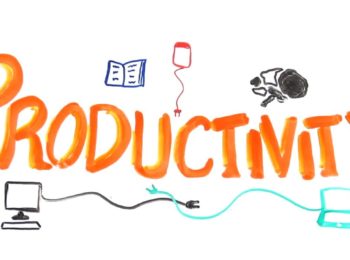The phrase “productive procrastination” sounds like such an oxymoron. It seems counter-intuitive to think that procrastination can ever be productive, especially when you put the supposed definitions of both side by side:
Productive \ prə-ˈdək-tiv \ (adjective)
having the quality or power of producing [something], especially in abundance
Procrastination \ prə-ˌkra-stə-ˈnā-shən \ (noun)
the act of putting off intentionally the doing of something that should be done
And yet, in productivity spheres, the idea of productive procrastination is often tossed about. But what exactly does it mean? I believe that this Medium article defines it quite nicely:
Productive Procrastination
the act of being busy while still procrastinating on your most valuable tasks
In essence, it’s all about doing one thing when you really should be doing another (more important) thing.
When I posed this question over at the Corner of Conquests Discord server (it’s a great community dedicated to accountability and productivity, check ’em out!), a lot of people appreciated the concept and even gave their own instances of productive procrastination.
This typically involved hyper-cleaning one’s space instead of working on a submission, doing an assignment instead of studying for a next day’s test, and even sorting one’s silverware drawer instead of making a purchasing decision.
I myself am not immune to this, and given how I’m such a rapid task switcher (aka multitasker), I often indulge in working on many tasks at a time and switching between them in an arguably procrastinating fashion.
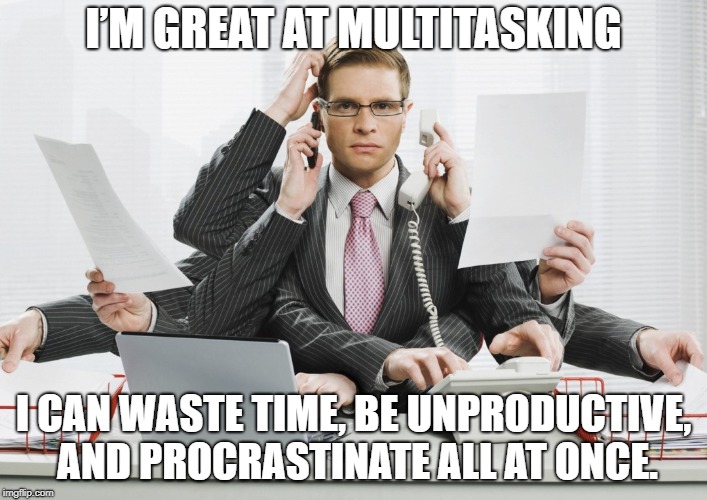
Kidding aside, in the process of writing this, I have also:
- Eaten a meal prepped lunch
- Scheduled 4 posts on my stories website
- Posted up a new question-of-the-week on CoC
- Updated the tallies for ToughLove
- Answered a question posed by someone
- Reminded my accountability buddy of our set goals for the week
- Folded my laundry
While many people might envy (i.e. laugh at) my powers of multitasking, I personally think it just shows how I’m such a great productive procrastinator.
I think just having the term “procrastination” in there just vilifies the entire concept. The idea of putting something off when you can do it now is a big thing that many people preach in places like r/GetDisciplined or even in different blogs and talks.
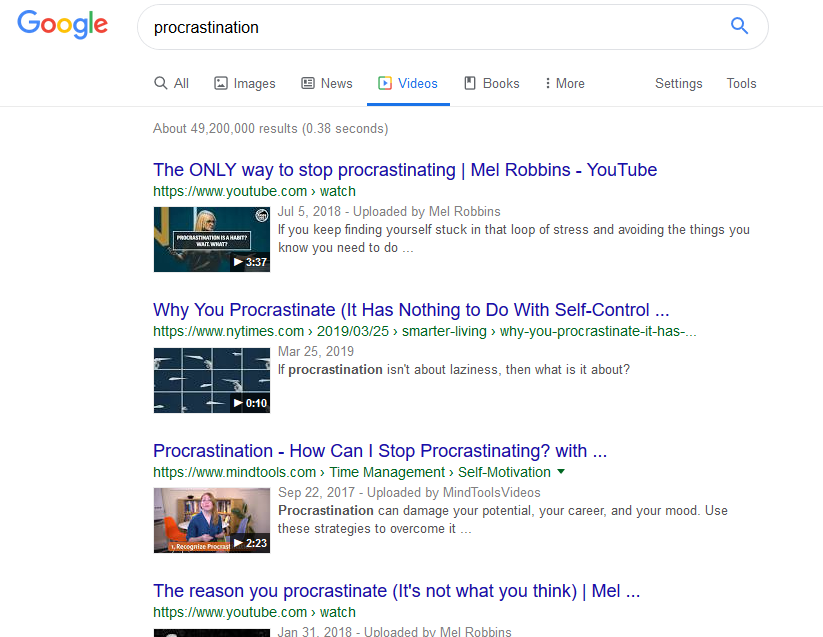
And honestly, I get it. It’s difficult to battle procrastination, especially if you’re weak-willed, have an unsupportive network, and have no clue on how to be accountable for your actions. (These reasons are not necessarily excuses in my eyes. I personally believe that all of these relate to how we’ve been raised, as well as the society that enables us to be so.)
But productive procrastination, for me, is a whole different ballgame, and shouldn’t be seen as such a negative thing.
One particular reason I believe so is because of Bill Burnett and Dave Evans’s book titled Designing Your Life. (And yes, that there’s an Amazon affiliate link.)
The book itself is an interesting read, and I’ve read it at least twice in the past two months. I’ve also since engaged in its activities, and thoroughly enjoy the concept of design thinking.
But the reason I bring it up is because in the book, the authors mention gravity problems and anchor problems. To paraphrase what they mean:
Gravity problems
situations that are virtually impossible to overturn
Anchor problems
problems wherein one is so anchored on to one grand/difficult solution, so it isn’t easy to move forward
To further illustrate what these two mean, here are two examples.
- A gravity problem noted in the book is the fact that poets do not earn millions of dollars on writing poetry alone. It’s near impossible to get publishers to pay you millions of dollars for your poetry portfolio.
- A sample of an anchor problem would be wanting to move out of the city because you want have a garden in the middle of a busy metropolis. There are many other ways for you to satisfy your want to garden, like working as a gardener in a city garden or caring for low-maintenance indoor plants in your home.
According to the authors, because of these problems, many people get stuck with the life they have, and more than a few of them are unhappy with their choices. Unfortunately, this is because they typically see no ways out of their situation, so they end up accepting what they have and living their daily lives without zest or joy.

But this is obviously not the case.
This brings me back to the question of productive procrastination, because I feel that people end up procrastinating because they’re stuck at something. It could be a project, communicating with a difficult client, cleaning out the garage, or even just leaving the house.
So instead of dealing with the looming problem in front of them, they opt to do something else. For some of us, that would mean checking off something else on our to-do list that has nothing to do with the big, scary thing that’s right in front of us.

I personally believe that that’s okay, that there’s nothing wrong with that.
There’s nothing wrong with taking a step away from a seemingly difficult task and working on something else on your checklist instead. Sure, the obstacle can be the way (as widely touted in Ryan Holiday’s The Obstacle is the Way book – not an affiliate link this time, but a YouTube video on it), but sometimes, it’s also good to stop pushing against the thing and do something else.
Instead of pushing against a gravity problem or an anchor problem, it may pay to gallivant across other less difficult paths for the meantime. As a matter of fact, it is sometimes exactly what we need to solve the noted problem. By removing ourselves from the situation and moving our attention elsewhere, we are giving ourselves space, clearing up our headspace, and giving ourselves another kick start, albeit in a different direction.
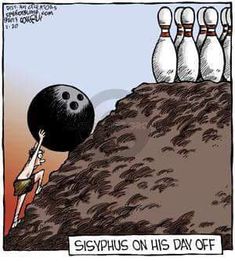
So yes, I think that productive procrastination isn’t half bad, but there’s something I’d like to note here:
Productive procrastination is fine, provided you eventually get back to the problem you sought to avoid.
Because let’s face it: that problem isn’t really going to go away, no matter how long you procrastinate for. Even if it seems like you’re getting a lot done, if you don’t resolve whatever it is that you’re productively procrastinating for, that thing is going to hound you and bite you in the butt.
So sure, do whatever it is you think you need to do while you hold off on completing that project, turning in that assignment, essentially doing the you need to do. But do eventually get back to it. A problem left unsolved doesn’t solve a problem, and we all know that sometimes, such problems lie in wait to strike us when we least expect it.
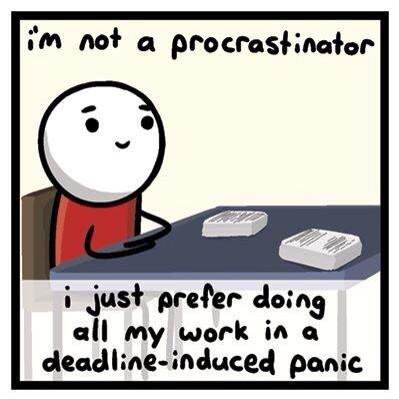
So what do I think of productive procrastination?
It’s fine to indulge in it, because it might just, ironically, help you look for better ways to solve the problem. However, it can only really be helpful if you remember to actually get back to solving the original problem.
That said, I hope this has been helpful to you. Now get back out there and DO THE THING.
Cheers!
